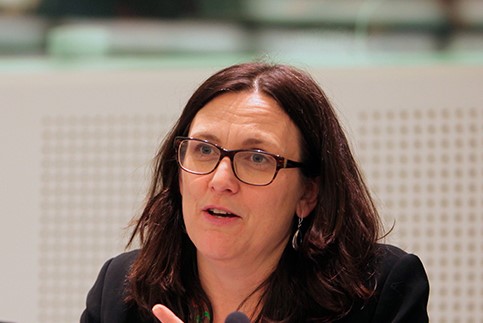Negotiations for a trade agreement between the European Union and Australia were officially launched on June 18 in the Australian capital of Canberra. The talks were launched by Australian Prime Minister Malcolm Turnbull and his trade minister, Steven Ciobo, together with the European Union’s Commissioner for Trade Cecilia Malmström.
As reported by a European Commission press release, the aim of the negotiations is to remove barriers to trade in goods and services, create opportunities for small and large companies, as well as setting ambitious rules in line with other trade agreements of the EU, contributing to shape global trade.
“I look forward to adding Australia to our ever-expanding circle of like-minded trade partners,” said Commissioner for Trade Cecilia Malmström. “In challenging times, it is heartening to see that Australia shares our commitment to a positive trade agenda, and to the idea that good trade agreements are a win for both sides. The result of our negotiations will be an agreement that offers clear benefits for both the EU and Australia. It will boost economic opportunity for businesses, both big and small, and create jobs.”
The first formal round of talks between EU and Australian negotiators will be held in Brussels on July 2-6.
According to the Commission, the EU is already Australia’s second biggest trade partner. Bilateral trade in goods between the two countries reached almost €48bn last year. The sectors which make up the bulk of EU exports to Australia are transport equipment, machinery and appliances, chemicals, food, and services. Bilateral trade in services is around €28bn.
The agreement could increase trade in goods between the two partners by over a third.
After her visit to Australia, Malmström will visit Wellington to launch the negotiations between the EU and New Zealand on June 21.

